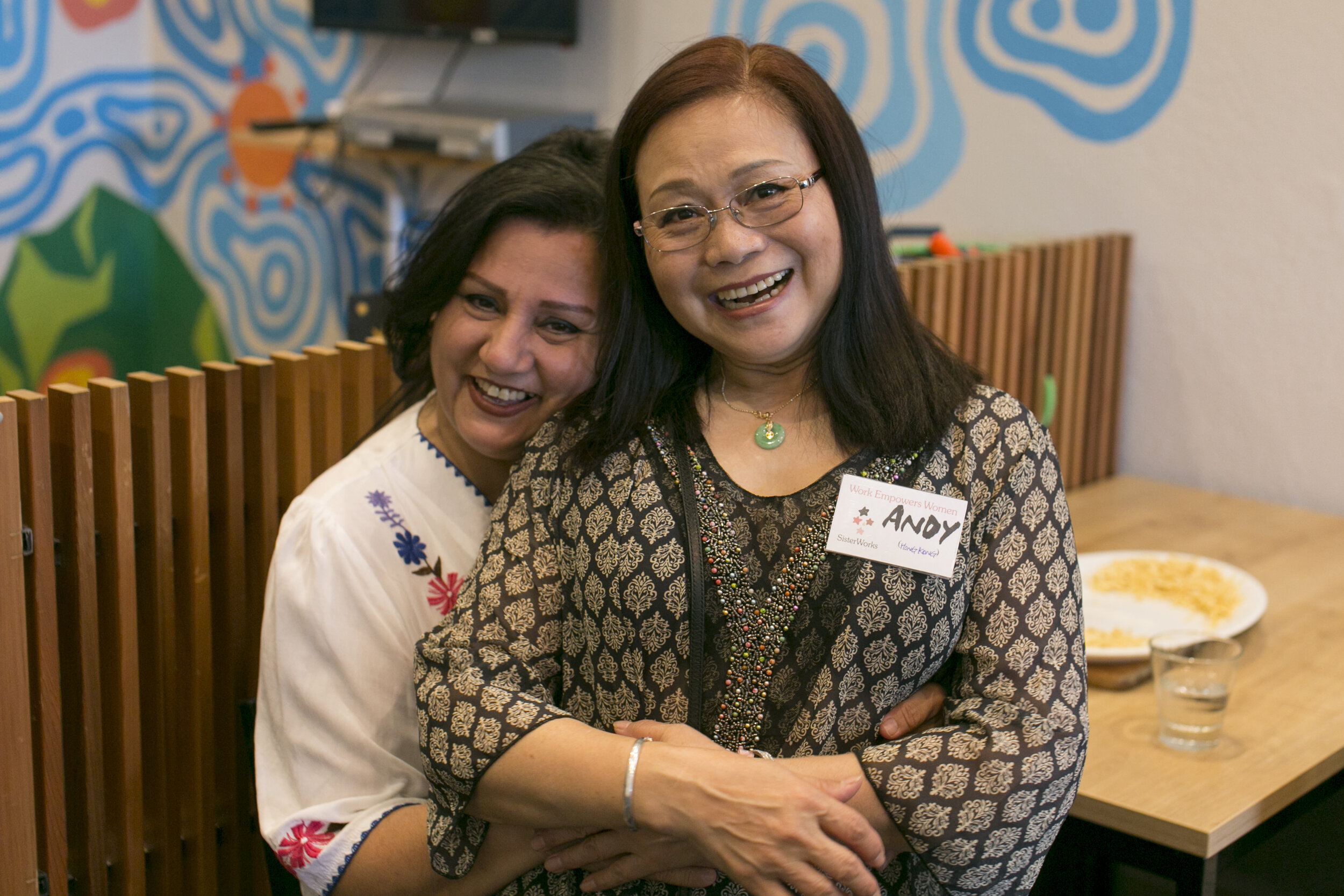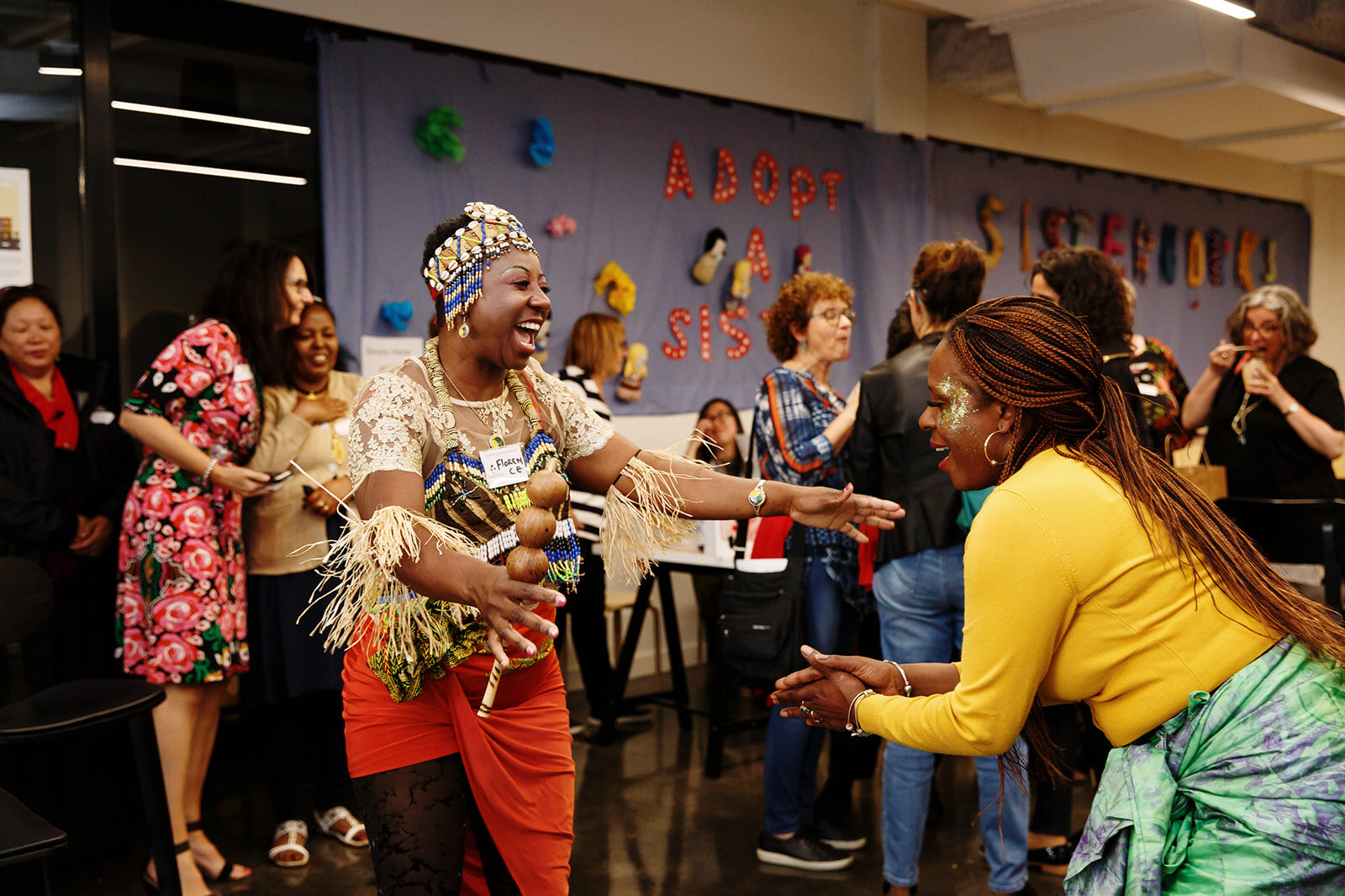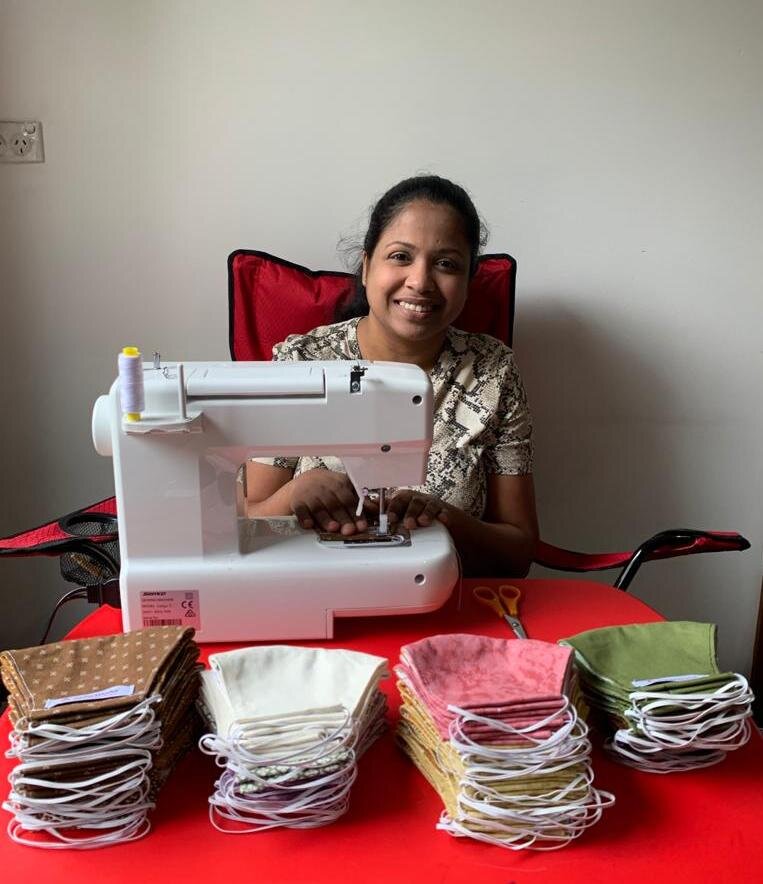SisterWorks - Givemas Day Eleven
Welcome to the second last day of Givemas. So far we’ve spoken to some amazing small businesses and organisations. Today is no different! We had the most wonderful opportunity to chat to Maria Chindris from SisterWorks about the amazing work they do in supporting migrant families in Australia.
Hi Maria, thanks so much for talking to KOS. Can you tell us a little about your own story, and how you came to be involved with SisterWorks?
With career goals within Community Development, I found myself at SisterWorks through my university internship in 2019. As soon as I began my internship, I fell in love with the organisation.
Being a second-generation Romanian myself with migrant parents, I resonated with the women’s stories. In the Sisters I saw my mother and grandmothers.
When my internship was coming to an end, I couldn’t say goodbye so I took on a volunteer role supporting corporate and fundraising relationships.
In February 2020 I was lucky enough to begin the position of Community Relations Lead, and I’ve loved every minute of it! My responsibilities at SisterWorks involve managing fundraising, community relationships, and digital communications, as well as supporting many public speaking engagement events to raise awareness about our impact.
My job at SisterWorks means a lot to me. It feels as though my life has come full circle – I was born and raised by migrant parents, and am now working to support migrant families like mine in their integration within Australian society.
Many of the women you work with have limited access/understanding of English, and come from many diverse language and cultural backgrounds. How do you create a community with these barriers in play?
Lots and lots of hugs (pre-COVID-19 of course)! One of the first things that struck me when I started my internship with SisterWorks was the affection that was shared amongst the women.
It was a ritual for our staff members to hug our Sisters as they entered our Empowerment Hub. At first, I thought it was just a friendly habit that was established somewhere along the way.
But I later found out that these hugs were strategic and encouraged by our management team. Body language and physical affection are important communication tools for us, as they transcend language barriers.
Sharing food (again pre-COVID-19) is another commonality amongst all the Sisters. We have communal lunches where the women will share food from their cultural backgrounds. When you are offered a handmade meal, there is a beautiful connection built amongst the people eating together.
There’s also so much humour and laughter. Some of our women have a fabulous sense of humour and are able to make us all laugh by only using body language! Even if we don’t fully understand each other’s verbal languages, laughter is contagious and an amazing way to bond.
We call all our women “Sisters”. Our community is a family – not bonded by blood, but bonded by a belief in the power of women supporting women.
Many of the Sisters have commented on how socially connected they feel through SisterWorks. Has COVID-19 challenged that, and how do you adapt?
COVID-19 had a significant impact on the way we connected with our Sisters. As you mentioned, connection is a key pillar in our support, particularly physical connection. So our team worked hard to translate that into an online sphere through the development of daily online classes that our women can access from home.
Our women embraced this new mode of communication and we saw an increased attendance in our classes. This year we also launched our SisterWorks app, where our women have access to an array of online learning and support materials. Having these communal, online spaces has helped us stay connected during COVID-19.
Do you think women are impacted disproportionately when seeking refuge/asylum? How does SisterWorks support this process?
At SisterWorks we meet the needs of women from migrant, refugee and asylum seeker backgrounds. These are the foundations of which SisterWorks was built, as our founder Luz Restrepo arrived in Australia as a political asylum seeker.
As refugee women, there are many common challenges, such as lower access to employment while trying to maintain childcare responsibilities.
SisterWorks has been modelled to address these challenges by providing our Sisters with accessible opportunities towards employment and education, all within a child-friendly working environment.
Through speaking engagements, Sisters are able to share their story and inspire others. Why do you think storytelling is so powerful?
Our speaking engagements have been some of my most rewarding experiences with our Sisters. When our Sisters verbalise their life journey, it can prove to be a tool of healing.
We are lucky to have very kind and empathetic audiences that book our speaking engagements. Before the event, many of our women are shaking with nerves.
When they are approached by audience members afterwards with messages of support and gratitude, the effect on our Sister is palpable. They are always glowing with pride.
Storytelling is so powerful as you are given a glimpse into another person’s world. Every person has their own unique story that you can never know from a surface level interaction. Being given an opportunity to hear a personal story is an intimate and emotional experience.
What does Christmas time mean to you and the women you support? Have you found Australia to be welcoming to diverse cultural/religious backgrounds?
Christmas is communicated as the “holiday season” at SisterWorks. It's a celebration of the year that was and a time to reflect on what we want to achieve in the New Year. We do celebrate Christmas, but we acknowledge the different cultural celebrations across religions during this time of year.
Australia overall is a welcome place for diverse cultures. There are many council-run events that celebrate diversity. While not everyone may agree with all manners of cultural expression, these sentiments are isolated.
There are many Australian communities that embrace multiculturalism. You have to find your ‘tribe’. For a lot of our Sisters, that’s SisterWorks.
Dinithi making COVIDSafe masks
Your work output during lockdown has been quite incredible, particularly with the immense work on mask production. How do you practice self-care during this time?
I really appreciate you acknowledging this! From an external perspective, it’s hard to know if people realise the work that has gone into our mask project. It has been challenging, but very rewarding, to have been able to keep our doors open and support our women during this difficult time.
That has been a huge motivation to keep powering through. A lot of my self-care has been reflecting on the impact we have been able to create for our women and the SisterWorks brand.
Self-care for me personally is about setting boundaries. Knowing when to switch off from work or take it a bit slower that day. Weekends are my time to completely switch off, so I’d make sure to get outside as much as possible and soak in some fresh air.
Practising gratitude is also very important for my mental health. I was blessed to maintain work and stay healthy throughout this time and that was something I regularly reminded myself of. Prospering a positive mental space is foundational for my self-care.
How has the organisation supported women in this time and what challenges have you faced as an organisation?
We translated all of our Empowerment Hub classes onto an online sphere, so our women were able to access all workshops from the safety of their homes.
There was a challenging transitional period to develop the IT skills in our women in order for them to access these online resources. But our women adapted and we have ultimately seen an increased attendance.
A factor in this increased attendance correlates with the childcare responsibilities of our women. Prior to isolation, we depended on our women physically commuting to our hubs.
This wasn't always possible because of commute time or childcare duties. Being able to access classes from home reduced these obstacles.
We financially support our women through production, as 50% of profits from our retail store go to the woman who made the product.
When the production of non-essential items was suspended, this was a challenging prospect. But our social enterprise team was extremely proactive in establishing our line of reusable face masks. For 8 months or so, this was our only line of production and source of income for our Sisters.
Our challenge now is planning for a post-COVID climate, retaining the momentum from our mask project and supporting more and more migrant, refugee and asylum seeker women.
This interview was part of our 12 Days of Givemas – our Christmas series that focuses on small businesses, charities and changemakers doing amazing work this festive season.
WORDS: MARIA CHINDRIS, DOMINIC HONE, NOA ABRAHAMS
PHOTOGRAPHY: SISTERWORKS
PHOTOGRAPHY: SISTERWORKS






